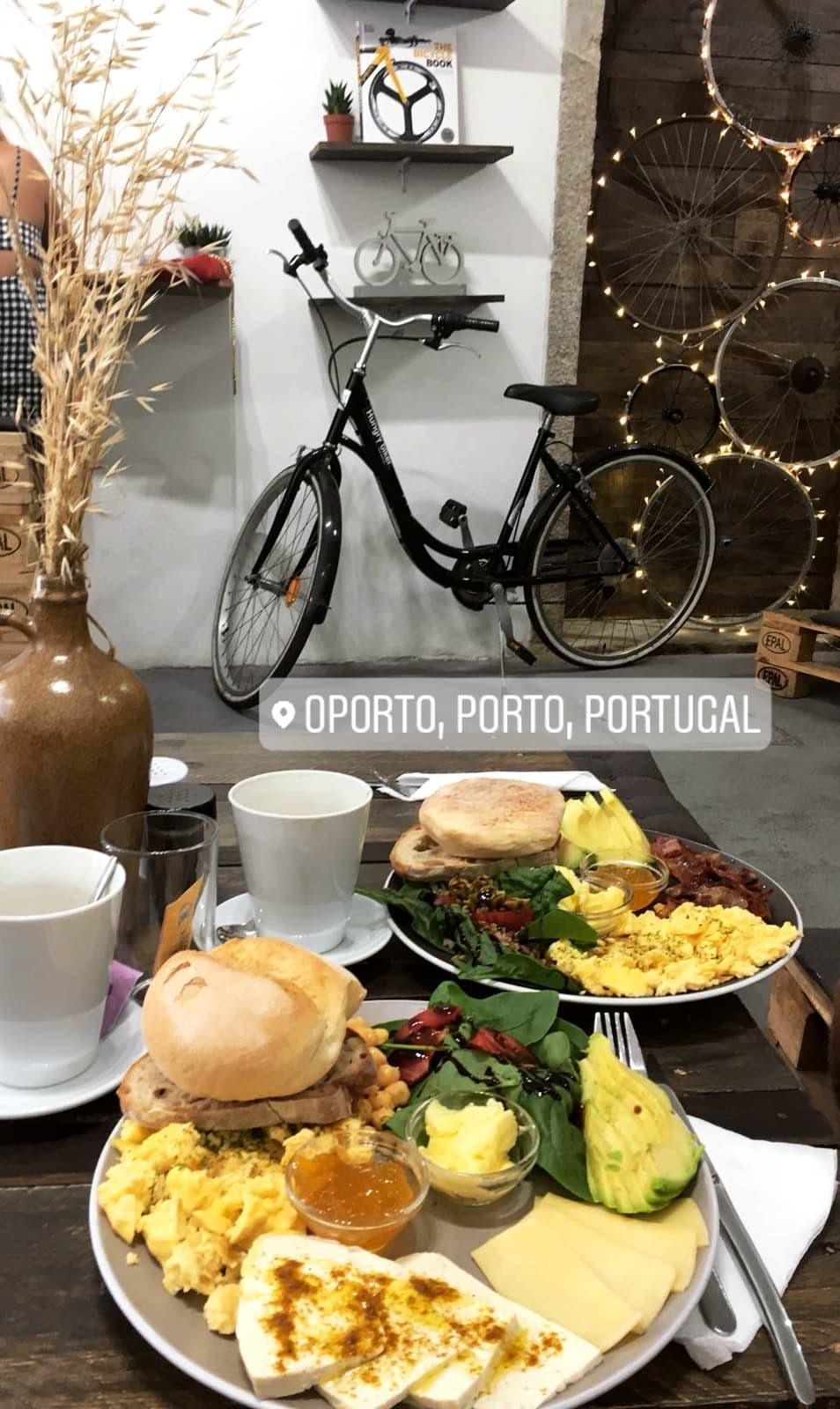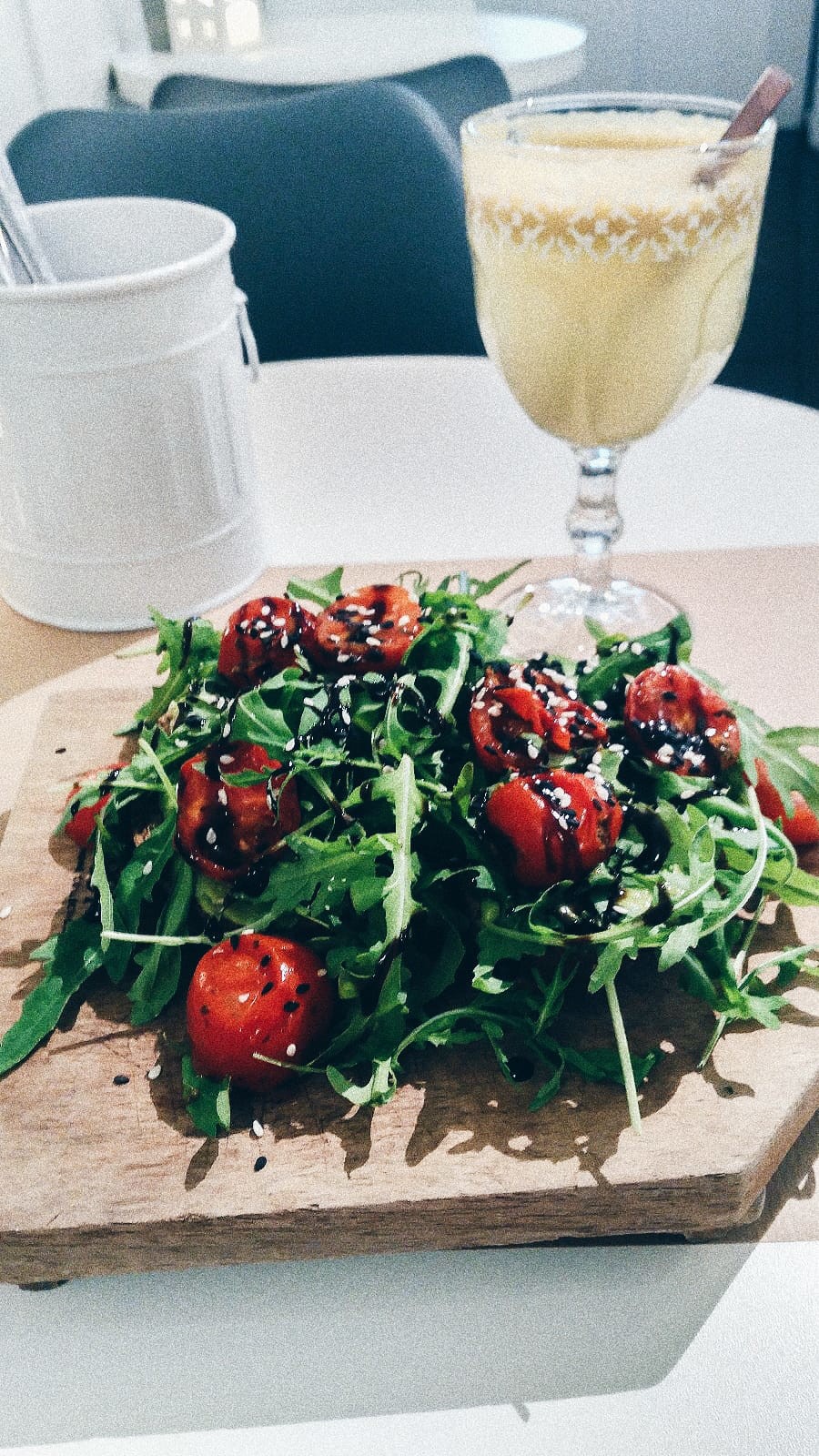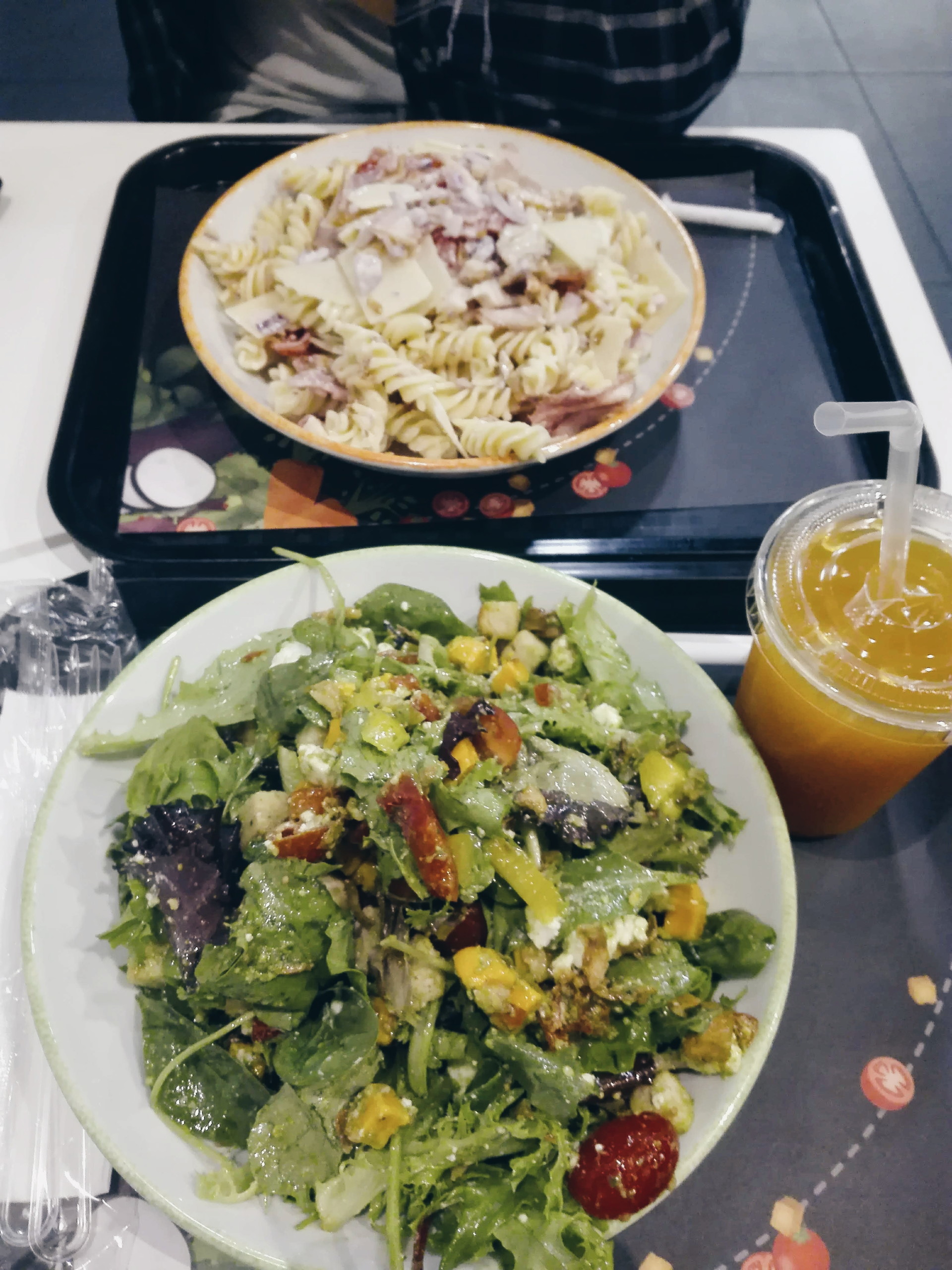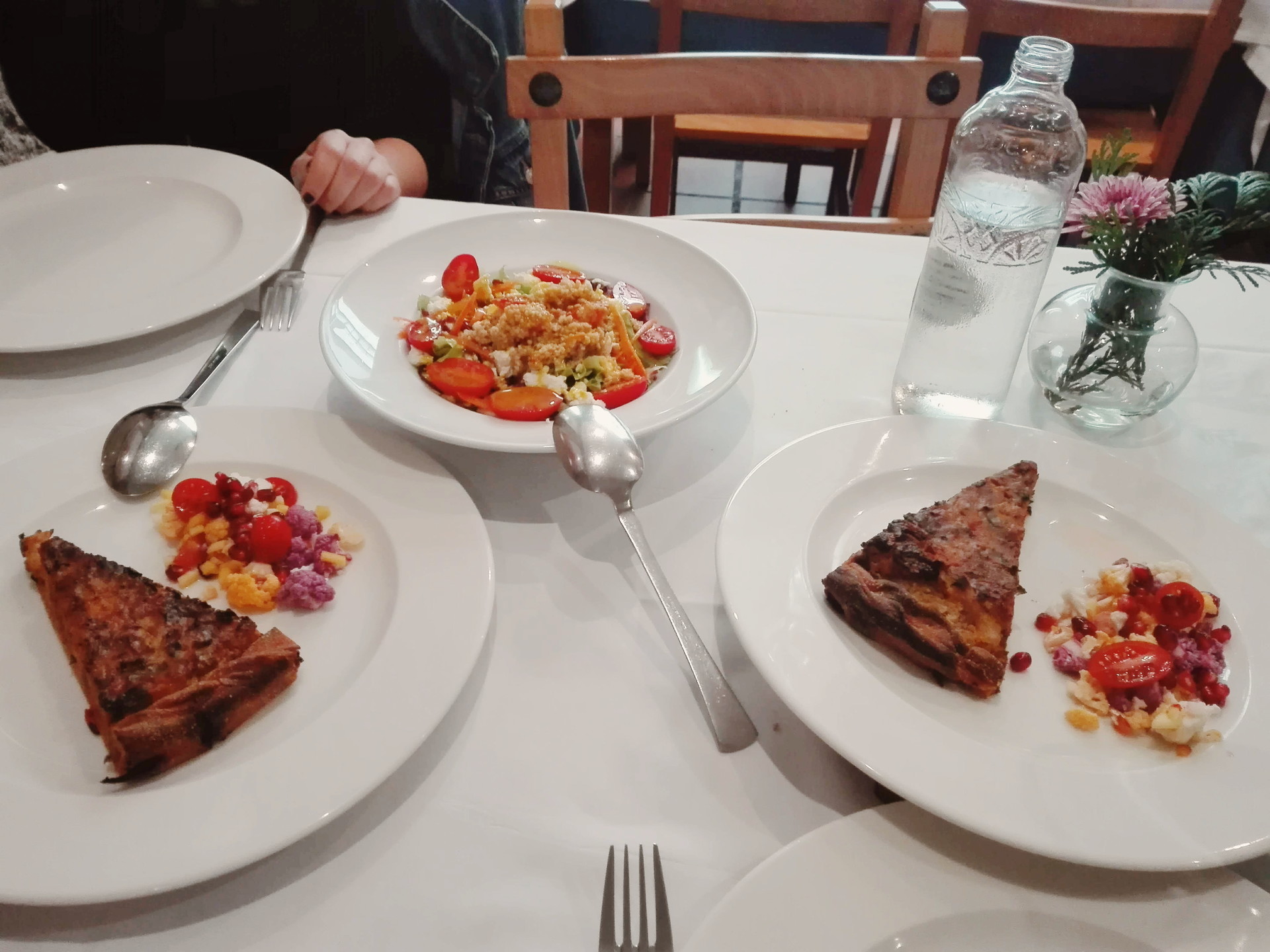Travelling as a vegetarian: the definitive guide
Hi, everyone!
Today's post is a little different. It is not about any country, nor any place, nor is it a recipe... It is a guide which shows you that it is perfectly possible to travel as a vegetarian, without any problems.
More than being a guide with advice, it is also a lecture for those people who don't accept (or criticise) this way of live, or that have certain prejudices towards vegetarians. I have compiled various experiences that I have lived myself, or with friends that, the same as me, are vegetarians; and I also have included information that I have learned throughout all of my trips.
As everyone knows, there are more and more people who are deciding to eliminate meat and fish from their diet, most people for ethical reasons, other people for health reasons. Therefore, when a person decides to be vegetarian, they produce a series of changes within their diet, as they should search for meat and fish substitutes.
This process isn't at all complicated as there are foods with vegetable proteins such as chickpeas, lentils or tofu. Also, you can also have eggs or cheese, which makes it a lot easier. When we are at home, it is really easy to have any kind of diet because we can choose what we eat ourselves: we go to the supermarket and choose what we like. After, we only have to plan our meals and it's all done.

But what happens when we are travelling? Is it just as easy to find vegetarian dishes?
I have been vegetarian for about 5 years. I have travelled a lot with non-vegetarians, in fact, during 99 per cent of the times, and therefore, lots of times I've had to adapt to different situations: going to restaurants which in general didn't have that many vegetarian choices, or them having to adapt to me and we were left having to go to specific places to eat because it was difficult to find something that I was able to eat. Anyway, I will say that, in general, in all the restaurants there is usually an option without meat nor fish, therefore usually there aren't any problems.

In this post, I have compiled some advice, tips that we can keep in mind for when it is time to eat as a vegetarian when we travel.
When we travel with someone, we have to assure ourselves that the person we are travelling with has similar tastes to us, and if not, respect what they like. In this case, if we travel with a vegetarian and they fancy going to a vegetarian restaurant, the minimum that we should do on our part is to be open to going to this place and having a new experience. I have to say, in the majority of cases, people are surprised by how much they like vegetarian food and in fact, lots of non-vegetarian people regularly go to these kinds of restaurants.
The truth is that in this sense I have always been lucky and in general, my travel partners have been concerned about finding something that suits everyone. On the other hand, another day we may want to go to a "meat" restaurant, but as I said, we always have to bear in mind that there is a vegetarian option for our travel buddy, which is what usually happens.

This photo is of a restaurant called Hungry Biker in the city of Porto. It is characterised by offering healthy breakfasts and brunches, most of their products are vegetarian, but for most of their dishes, they give you the option to choose between bacon or tofu, or between ham and seitan, etc. I remember that we loved it, and the decor, as you can see, is great. I would recommend it to everyone who visits the city.
There are countries where it is really easy to be vegetarian. For example, in the United Kingdom they are already very used to it, as most of the restaurants mark the vegetarian dishes with a V. Also, in lots of Asian countries, where historically tofu or vegetables are more integrated into their culture, we can easily find a vegetarian dish or restaurant.
If you are planning your trip, the best thing is that you take an interest in the gastronomy of the country and if, by chance, the typical dishes involve meat or fish, you will have to be a bit more creative. Also, we usually think that depending on the type of area (rural or area) that it is, it can be easier or harder to follow this lifestyle, but the truth is even though it has an influence, it isn't a determinative factor.

A good resource, which is simple to use, is to open TripAdvisor and filter by the type of restaurant. If you are a backpacker and prefer to save money, firstly apply the "cheap" filter and then the "vegetarian" filter and from there, it will show you all of the available restaurants where you are that fit the criteria. The only negative thing about restaurants that are exclusively vegetarian is that they take advantage of being "healthy" and are usually expensive with high prices.
As for restaurants which aren't known for being vegetarian (but that have dishes without fish and meat), these are usually cheaper. In most restaurants, you will always be able to eat a mushroom or vegetable risotto, delicious. In the most remote and worst cases, there will be restaurants where they only thing that you can order will be a salad, but you have to admit that this is a rare and exceptional case. Even at a motorway bar in the middle of nowhere, they can have a delicious plate of ratatouille. But even McDonald's (as a very last option) has a menu with salads or even a vegetarian burger in most countries.

And if you come across a situation where you go to a restaurant and there are absolutely no dishes that don't contain animal products, it is rare to find a place where, if you order any vegetarian dish, they won't cook it. Also, it is a way of "finetuning" dishes, for example... "Could I have the pork loin with risotto in green sauce without the pork? " or "could I have the egg, ham and peas but without the ham? ". There is always a solution, even it is doesn't satisfy us. You have to stay calm when you read on the menu "vegetable sandwich with tuna", and ready.
Really recently, I went to a restaurant in Bilbao where you have to have the menu of the day, and when I explained to the waitress that there were not any vegetarian options on the menu, she told me that she could adapt it to me and offered me 5 different dishes to choose from for my menu. So as you can see, it is usually easy.
There is also a really useful app called HappyCow which helps you to find vegan or vegetarian restaurants anywhere in the world, as well as ecological shops and vegetarian recipes.

Now is the time to dismantle the myth that vegetarians just eat vegetables, as lots of people still think. A really common dish in restaurants is hummus with mushrooms or tomato sauce; falafel, vegetable burger; small red peppers stuffed with bechamel, etc. Also, there are dishes that you can adapt to this way of eating: taking out the fish or meat from the paella and adding more vegetables (you can do the same thing with shellfish fideuá), for Galician pie with cuttlefish or octopus, you can fill it with vegetables; and if you go further and you're vegan, you can even cook a potato tortilla with chickpea flour instead of using eggs. Normally, when you think about being vegetarian, it's that you have to limit yourself to foods which are more expensive, like tofu, seitan or tempeh, etc, but it's obvious that you don't have to limit yourself this way.

Now leaving restaurants to one side, there are trips which are further away from cities or where we go to places surrounded by nature.
It is here where you have to bring food in a Tupperware or buy it beforehand from a supermarket. If you are someone who likes tasty food, you can buy a pot of hummus, which is in most supermarkets, and dip carrot sticks in it, which is so good. They also sell pots of guacamole, delicious. If you need something a bit more consistent (like for after a walk) you can buy a bag of dried fruits, bring an apple, or eat an avocado. Resources, people, resources, not everything is a ham sandwich.
Basically, I'm not reinventing the wheel for anyone. These are very "normal" foods which are common in our day-to-day life which even lots of carnivores have as a snack, without the need to add fish. These examples show us again that lots of people have a wrong idea about vegetarians, for many people who eat meat or fish make vegetarian meals without even realising it.

In a way of conclusion, I have to say that although lots of people think that travelling whilst following a vegetarian diet can be a hassle, here it is obvious that, with resources, this isn't true. And for meat-eaters, I recommend that on your next trip you try to eat vegetarian, as a challenge, to see what happens. I am sure that you will realise that it is easier than you thought. And finally: if you want variety, get creative.
And that is the post for today! I hope that you enjoyed it and that it comes in handy, you can tell me in the comments about any resources that you have or any story to share. I will see you soon with more posts.
And thank you once again for reading!
Photo gallery
Content available in other languages
Want to have your own Erasmus blog?
If you are experiencing living abroad, you're an avid traveller or want to promote the city where you live... create your own blog and share your adventures!
I want to create my Erasmus blog! →











Comments (0 comments)